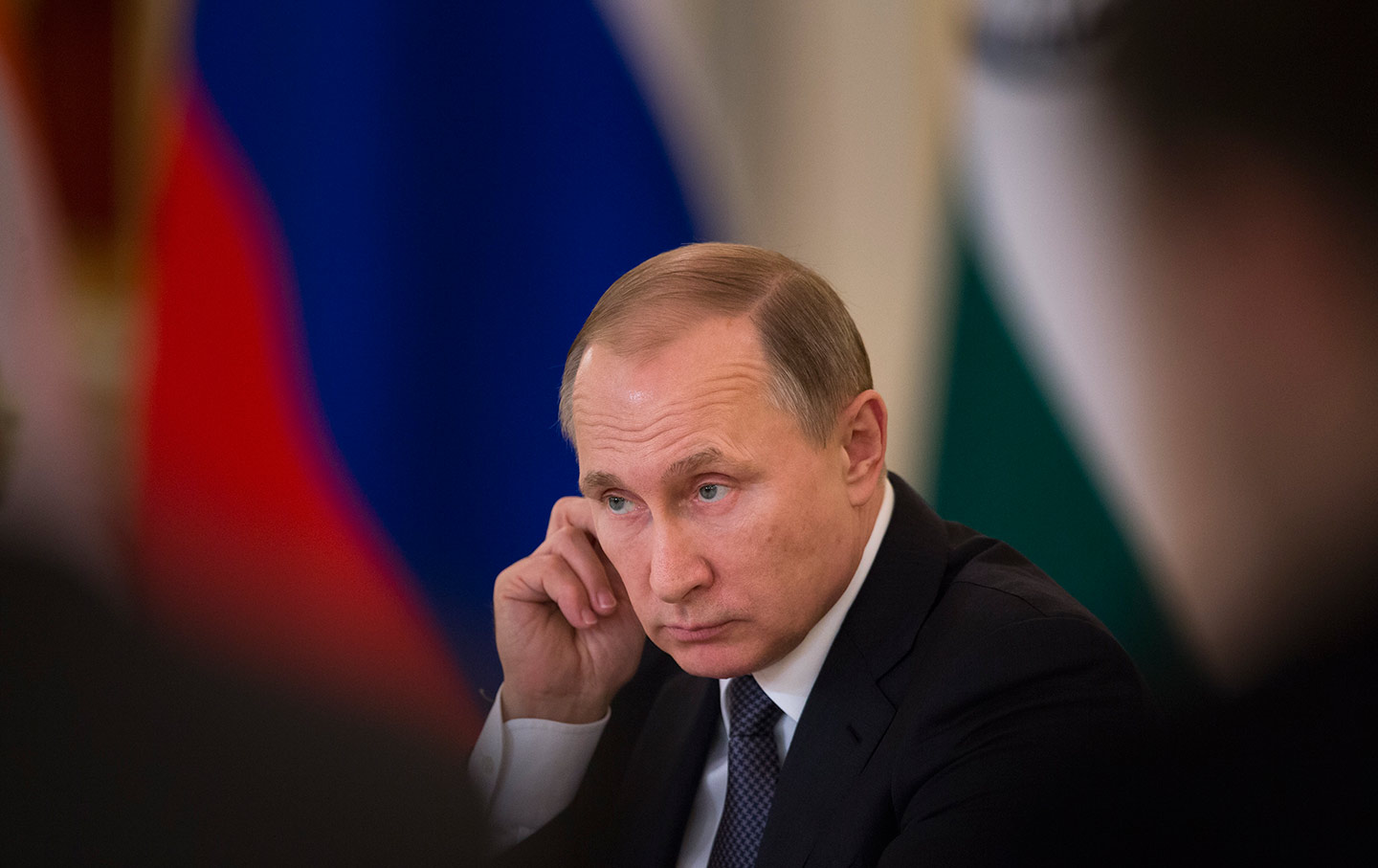
Stephen F. Cohen
Stephen F. Cohen is a professor emeritus of Russian studies and politics at New York University and Princeton University and a contributing editor of The Nation.
Why would Moscow want to fight terrorists without the US? It doesn’t.
Russian President Vladimir Putin. (AP Photo / dpa, Pavel Golovkin)
Manichaean Cold War myopia and ludicrous Russiagate allegations have produced one of the worst periods of American "geopolitical” thinking in recent decades. Consider President Trump’s recently announced withdrawals of US forces from Syria and Afghanistan. Instead of applauding these long-overdue steps, the bipartisan US political-media establishment has denounced them as "Trump’s gifts to Putin.”
But why would Russian President Putin want to be without the United States as an ally in the fight against terrorists in these two countries, which Moscow has long regarded as its geopolitical backyard? In Syria, where, as Putin has repeatedly warned, thousands of jihadists with Russian passports have appeared and vowed, if they take Damascus, to return to Russia and wage the same war there? And why even more in Afghanistan, where ever since the Soviet invasion in 1979, Moscow has worried that victorious Afghan terrorists and their foreign allies—by whatever name in whatever organized form—will flow through Central Asia into Russia, along with the indigenous Afghan war-funding crop, opium poppy? (Heroin addiction, fostered by cheap Afghan opium, is already reaching epidemic proportions in Russia.)
Unlike a large segment of the US policy-media elite, Putin can think geopolitically in his nation’s clear national interests. For 17 years, he has sought a full anti-terrorist alliance with the United States—first with President George W. Bush after 9/11, then with President Barrack Obama, always in vain. As a candidate and then as president, Trump has seemed to want to seize the opportunity, but has been thwarted by Russiagate zealots, primarily Democrats, though not only.
Now we are told that Trump did something "treacherous” by meeting privately with Putin without adequate witnesses or note-keeping. His Russiagate accusers know history as poorly as they understand American national security. President Richard Nixon, for example, once met with Soviet leader Leonid Brezhnev with only Brezhnev’s translator present.
We should hope instead that in their necessarily secret meetings—there are enemies of cooperation in high places on both sides—Trump and Putin discussed expansive US-Russian cooperation against organized international terrorists, who are in pursuit of radioactive materials to make their explosions more lethal, whether the threat be abundantly visible in Syria and Afghanistan or silently incubating again in Europe and in Russia—or in our own country.
The Bulletin of the Atomic Scientists has reset its cautionary doomsday clock ever closer to midnight. The growing dangers of a new nuclear arms race also require the kind of US-American cooperation that has been badly shredded by the New Cold War and by unproven Russiagate allegations. But international terrorism has already repeatedly struck midnight. Is that not late enough to let Trump and Putin do what they can for the sake of everyone’s security, as American presidents and Kremlin leaders have previously done—and were expected to do?
This commentary is based on the most recent weekly discussion between Stephen F. Cohen—professor emeritus of Russian studies and politics at NYU and Princeton—and the host of The John Batchelor Show. This installment also includes Russia as an energy superpower and the growing role of the church in Russia. (The podcast is here. Now in their fifth year, previous installments are at TheNation.com.) Cohen’s new book, War With Russia? From Putin and Ukraine to Trump and Russiagate, is available in paperback and as an ebook.



_jpg/250px-ElbeDay1945_(NARA_ww2-121).jpg)





